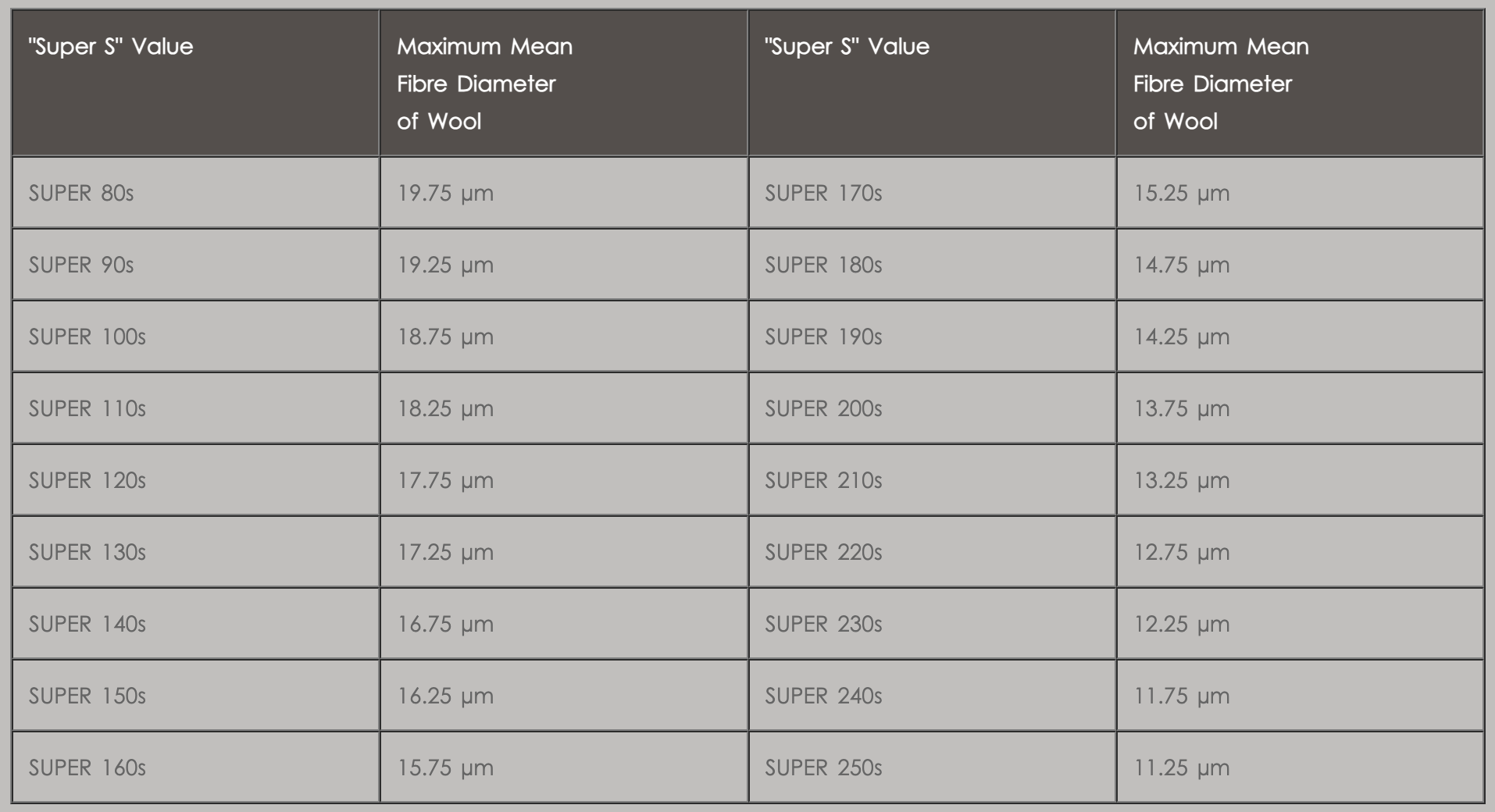Suit Fabric Weights: Explained
When it comes to crafting a custom suit, choosing the right fabric is essential. One crucial aspect to consider is the fabric weight. Fabric weight refers to the thickness and density of the material used in tailoring garments. It plays a significant role in determining the overall look, feel, and functionality of a custom suit. In this blog post, we will delve into the concept of fabric weight and its importance in the world of bespoke tailoring.
What is Fabric Weight?
Fabric weight is the measurement of how much a specific area of fabric weighs, typically expressed in grams per square meter (“gsm” or gm, shortened) or ounces per square yard (“oz/yd²” or oz, shortened). It indicates the density and thickness of the fabric. The weight of a fabric can vary, ranging from lightweight to heavyweight, each offering distinct characteristics and suitability (ha) for different occasions.
Fabrics can come in almost ANY weight, but the most common for suiting and outerwear fall between 200 gm and 500 gm. Anything from ~200 gm/7 oz to ~400 gm/14 oz is primarily used for suiting. The more the weight increases, the more appropriate the finished garment will be for Fall/Winter climates. The inverse is true for Spring/Summer. Fabrics above 400 gm/14 oz in weight are generally reserved for outerwear such as overcoats and peacoats, though some suits do exist and definitely can be made using very thick fabrics, at the potential expense of added stiffness depending on the material used (wool, cashmere, camel hair, alpaca, etc.).
But I’ve Heard “Super 100’s” Before, What is That?
Fun fact! The word “super” in regard to suiting fabrics can only be applied to fabrics made of pure new wool. Fabric manufacturers use the notations of “Super 100’s, “Super 210’s”, etc. to denote not just the fabric’s fiber thickness, but that the fabric was woven from brand new wool, not recycled wool or any other non-wool material. “Superfine Wool”, which is where the “Super” in any fabric touting a number comes from, is actually a technical classification of wool and needs to be verified in order to carry that name.
The “Super _’s” numbers refer to the verified thickness, in microns, of the individual fibers used in a given fabric. The official Cashmere.org website defines the exact classification requirements for a fabric to be given a “super” value.
The average consumer conflates these “super” numbers with a fabric’s weight and oftentimes its quality. While it is true that Super 250’s fabrics use remarkably thin fibers in their weave, those fibers aren’t necessarily guaranteed to be of the highest quality and might not always be as soft to the touch as you would expect.
The higher the super number is, generally speaking, the more densely woven the fabric is. If you held a Super 100’s fabric and a Super 200’s fabric up in front of a bright light, you would see more light coming through the Super 100’s fabric. The same can be said of air passing through it. With this in mind, the lower the “super” number of a fabric, the more breathable it is likely to be. This can help you think of the “super” numbers more as a guide to the seasonality of a garment fabric rather than its weight or quality. In order to determine a fabric’s feel and quality, you really have to feel it in person.
For a little more guidance on that, check out our blog post on Choosing a Fabric Using Swatches here - https://www.capitolhillclothiers.com/style-guides/choosing-a-fabric-using-swatches
The Relationship Between Fabric Weight and Seasonality
Fabric weight has a direct correlation with the seasonality of a custom suit. Lightweight fabrics, such as tropical wools or linen blends, are ideal for warmer climates or summer events. These fabrics are breathable, allowing airflow and providing comfort during hot weather. On the other hand, heavyweight fabrics like tweed or flannel are perfect for colder seasons or winter occasions. These fabrics offer insulation and warmth, ensuring you stay cozy in chilly temperatures.
If you’re looking for other style tips for 2024, check out our blog post on suit trends for 2024 below
Men - https://www.capitolhillclothiers.com/style-guides/10-suit-trends-for-men-in-2024
Women - https://www.capitolhillclothiers.com/style-guides/9-suit-trends-for-women-in-2024
Considerations for Business Attire
For professional settings or business attire, the fabric weight of a custom suit should reflect a balance between comfort and formality. A light to medium-weight fabric, such as Super 100’s or Super 120’s wool, is a popular choice. These fabrics provide a polished and elegant appearance while allowing breathability and ease of movement throughout the day. They function well during all seasons and are most appropriate for the “daily driver” suit.
Casual and Formal Occasions
Fabric weight also impacts the level of formality and versatility of a custom suit. If you're aiming for a more casual or relaxed look, lightweight fabrics like cotton or linen can be great options. They offer a more casual drape and create a laid-back aesthetic. Conversely, for formal occasions, medium to heavyweight fabrics, such as worsted wool or mohair blends, provide structure and a refined silhouette. As for the Super numbers, a higher Super value such as Super 250’s generally makes a fabric, and therefore the garment comprised of it, more appropriate for elevated settings such as black tie events, weddings, or high-level business meetings.
Conclusion
Understanding fabric weight is essential in selecting the appropriate fabric for your custom suit. Consider the season, occasion, and desired formality level when making your choice. Whether you opt for lightweight fabrics for warm weather or heavier fabrics for colder climates, the right fabric weight can enhance your comfort, style, and overall appearance in a well-tailored custom suit.
Remember, consulting with a skilled clothier is crucial in determining the right fabric weight for your specific needs and preferences. With our expertise and guidance, you can create a custom suit that embodies both style and functionality. When you’re ready to dive in, reach out to Capitol Hill Clothiers at anthony@capitolhillclothiers.com and I’ll make sure you get exactly what you need.



